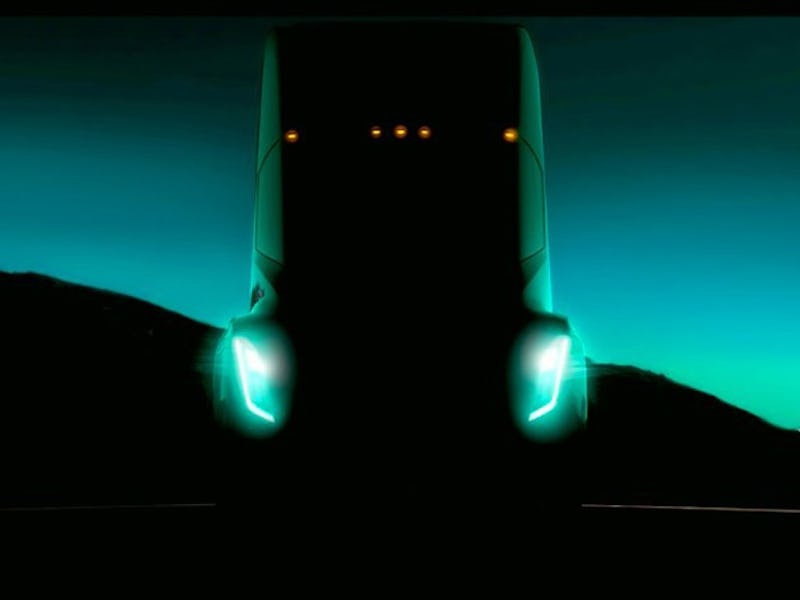The Tesla Semi isn’t just an attempt to prove electric trucks are possible. Set to be unveiled later this month, the vehicle is the company’s first step towards Elon Musk’s ultimate vision to automate freight deliveries with fleets of self-driving trucks. He’s far from alone in that goal — it’s predicted nearly two million trucking jobs could be automated within a decade.
Not that the general public is necessarily ready for A.I. to drive trucks or anything else, a fact that might give some pause to Musk and other would-be autonomous trucking magnates. New polling by Pew Research shows that, when asked the question “How safe would you feel sharing the road with a driverless freight truck?”, the vast majority of Americans aren’t at all okay with sharing the road.
Of the respondents, 32 percent of Americans said “not safe at all,” with a further 33 percent saying “not too safe.” People who are comfortable with the idea are in a clear minority, with just 26 percent saying they would feel “somewhat safe.” Only eight percent said they would feel “very safe.”
Musk has said the first version of the Tesla Semi will not be autonomous, but the emphasis here is on “first version.” An August report from Reuters indicated Tesla is actively looking into putting self-driving tech into the truck that is similar to that its cars’ Autopilot feature. For Tesla, self-driving trucks are more a matter of “when” than “if.”
Pew’s findings reveal a wider unease around autonomous vehicle technologies, with 56 percent saying they would turn down the opportunity to ride in a self-driving vehicle. Pew Research’s Aaron Smith and Monica Anderson said in their report.
Those who are hesitant to use these technologies frequently describe their concerns as stemming from a lack of trust in technological decision-making and an appreciation for the unique capabilities and expertise of humans. For instance, roughly seven in 10 Americans who would not want to ride in a driverless vehicle mention a lack of trust, a fear of losing control and/or general safety concerns when asked why they would not want to use this technology.
Musk has spoken a few times before about his long-term plan for trucking. Today’s drivers would eventually transition into a “fleet manager” role, overseeing multiple self-driving trucks at once, but research released Wednesday suggests the public may not be as keen on the idea.
“I think the role of [truck] driver will sort of translate to ‘fleet manager’,” Musk said in an interview with CNBC last year. “I think that’s a more interesting job than driving one.”
During the same interview, though, Musk did admit that it could take some years before it becomes a reality.
“It’ll be a few years after trucks can self drive before regulators have seen enough data to feel comfortable not having a driver in the car,” Musk said.
Beyond public perception, autonomous trucks also face testing hurdles. The state of California does not allow licensed companies to test autonomous vehicles that weigh more than 10,000 pounds. In May, Tesla submitted a letter to Brian Soublet, head general counsel to the California Department of Motor Vehicles, to ask the organization to remove this ban. If the rule is lifted, it could be the first step toward changing these perceptions.
If you liked this article, check out this video on five reasons to get excited about self-driving cars.
